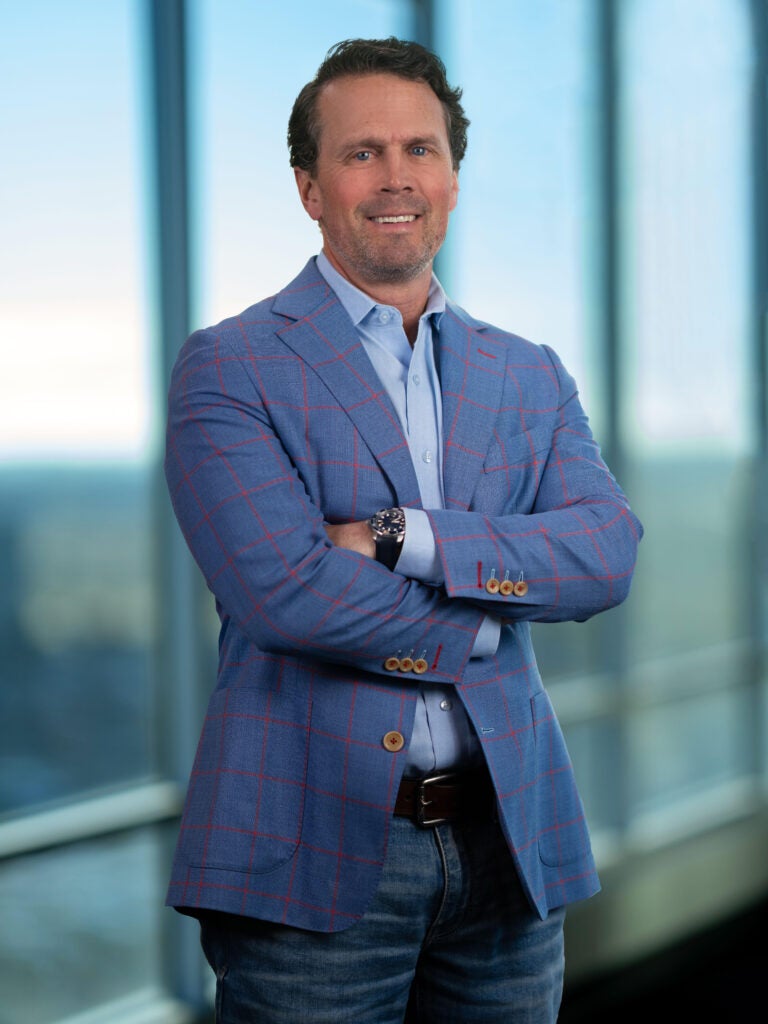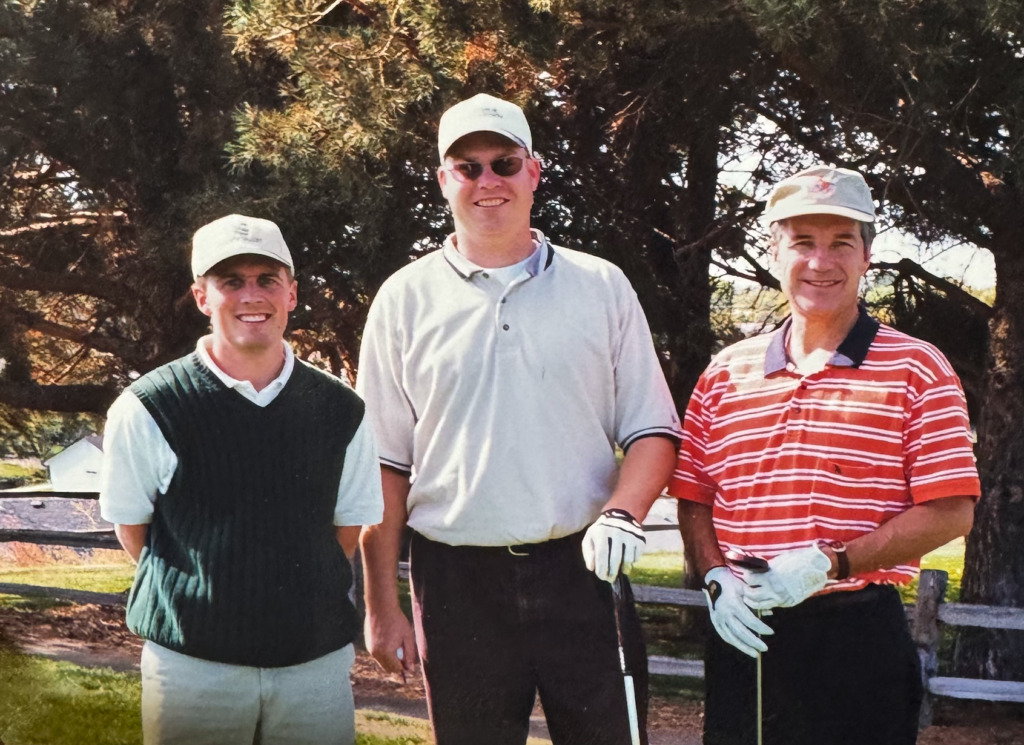
Boise State College of Business and Economics (COBE) accountancy alumnus Ryan Cleverley is the COO of Ahlquist, a commercial real estate development, construction and property management company. Here he shares about how his Boise State education helped shape his journey.
Q: How did you end up at Boise State?
A: I grew up in Boise, and after growing up here, Boise State wasn’t my top choice of school–I wanted to try living somewhere else. I went to BYU for a year, then served a mission for my church and married my high school sweetheart who was playing basketball at the University of Utah at the time. I worked at Key Bank and went to school part time to help her through that. When my wife graduated, we moved back to Boise because we wanted to be near family and establish ourselves here. I ended up going back to Boise State to finish my degree and it was an amazing experience–that’s what really led me to where I am today.
Q: How did you select your degree path?
A: When I went back to school, I was working at KeyBank, so I was already in the finance world. I started exploring what professions come out of each major. If you study accounting, you don’t have to be an accountant but it’s an outstanding major if you’re interested in business. Lots of people go into business without understanding the implications of pricing the services and projects they’re selling, but accounting is called “the language of business.” Whatever your major, I’m a huge fan of taking some accounting classes and gaining that underlying knowledge.
Q: What advice would you give a student who was considering studying accounting?
A: People get scared of accounting. Whether you’re getting entry-level accounting skills or going further, the sooner you realize we’re all nerds, the better off you’ll be! But I really advocate for understanding the flow of transactions. If you want to own a business or even get a loan from a bank, I’m a believer that you need to understand how it all works together, and you can’t shy away from accounting classes. Many successful business people have a foundation in accounting and how it works.
Q: Where has your degree led you?
A: After graduation I worked in auditing at one of the “Big 6” accounting firms at the time, Arthur Anderson. It was a great place for me to start out because the professional interactions and the people you’re around at a bigger firm will transform your career. That experience made me realize what I wanted to do: be in business. After that I worked for Channel 7 as controller and business manager, and part of my role was also HR manager. I was only there for four years, but I made some incredible connections with local people on the news side of things. Then I worked some other jobs including for a family business and at a publicly traded company–I was climbing the corporate ladder and trying to figure out where I wanted to end up. Eventually, I got into commercial real estate.
All of those past experiences prepared me to be in the role of CFO at Ahlquist, and now COO. I can sit in this seat now because of all those experiences and the journey I took to get to this point. Students sometimes ask me, “What was your path?” And I tell them I didn’t have a direct path and that they just have to start working and let their careers take them on that journey. You should have goals and aspirations but you can’t force some of these things–they just happen naturally.

Q: How would you describe your job?
A: Ahlquist is a commercial real estate development and investment firm. We’re not a big company, but we do big projects. We were responsible for bringing TopGolf to Meridian–at the time, TopGolf didn’t enter markets under one million people and we ended up being their prototype for entering smaller markets. We have about 50 employees and our goal is to be intelligent about the work we’re doing to keep people employed, keep investors happy and do projects that are meaningful to the community. Jim Cleary, the CEO of MWI Veterinary where I worked for years, told me something that has never left me. He said, “Bigger isn’t better, better is better.” You don’t have to be bigger, just be better. As the COO at Ahlquist now, that’s my role–using numbers and data to figure out how we can be better.
Q: What’s one thing you wish you knew as a student that you know now?
A: Patience in the process. Young people, especially today, have been raised in a world of instant satisfaction and instant information. We want everything now, but you’ve just got to be patient. It’s a long journey–enjoy the journey, learn from people above you, ask a lot of questions and be patient.
Q: How do you stay connected with Boise State and COBE?
A: For me it’s been more about informal connections, talking to students I know that are going to the school, asking them how I can help. I also stay connected through the athletic program, but probably because of my stage in life, I’m feeling the need to do more to give back.
Q: What are some of the biggest trends you see shaping your industry, and how can COBE prepare students for these changes?
A: I’d like to get more real estate curriculum into the business programs at COBE. There’s an industry need for property and asset managers. At Ahlquist, I’d like to develop a better internship program for accounting and finance majors. As our company continues to grow, we can teach people with a business degree our industry. But if there was real estate coursework, students would graduate with understanding and knowledge about how it all works.
Future Spotlights
If you’d like to suggest an accomplished COBE alum for a future Alumni Spotlight, please let us know! Reach out to COBE Advancement Coordinator Griffin Zue at griffinzue@boisestate.edu.